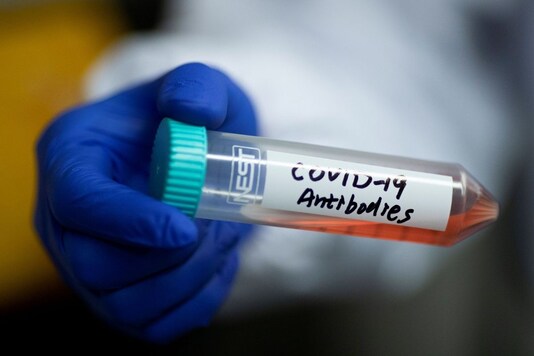Before the second wave surged through the country, it was serological surveys that had hinted at the propensity of the novel coronavirus to spread among the population. Such surveys, which track Covid-19 antibodies, habitually throw up figures that surprise experts and the public alike even as it is widely held that the number of actual infections far exceeds that detected by tests. The survey among more than 2,000 children at two Mumbai hospitals is a case in point. It found that over 50 per cent of the participants had antibodies against Covid-19, which means they had an infection and recovered. One conclusion of the survey is that children are likely to not be severely affected by the disease as most of the participants had an asymptomatic infection. Here’s what else serological
surveys can tell us.
Why Are Sero Surveys Held?
The key implications of a sero survey for public health experts lie in the status of the spread of an infection among a particular sample group. According to the Indian Council of Medical Research (ICMR), sero surveys can provide data on “the proportion of population exposed to the novel coronavirus, including asymptomatic individuals”.
But that is not the only takeaway. Surveys among specific groups, for instance, high-risk or vulnerable populations like health and frontline workers, immunocompromised individuals or those in containment zones can also be
used to identify the ones that are more vulnerable compared with the others. That can allow health authorities to plan pointed interventions that are tailored to a specific group, or area’s, health needs.
Soumya Swaminathan, the WHO Chief Scientist, adds that sero surveys also provide a chance to track how long immunity lasts after an individual has recovered from Covid-19. Sero surveys can be used to “test the same
group of people over a period of time to understand more about the immunity against this virus”.
Importantly, sero surveys also tell us who has not been infected with the novel coronavirus, which is to say that health authorities can track what proportion of the population is still vulnerable to getting infected and how far a particular location is from achieving herd immunity.
So, What Happens In A Sero Survey?
According to ICMR, the antibodies tracked in a sero survey, called IgG antibodies, typically start appearing “after two weeks of onset of infection, once the individual has recovered after infection and last for several months”. So, an antibody test is not useful for detecting infection, which is mainly done in India via the RT-PCR or rapid antigen test (RAT), for which an oral and nasal swab sample is collected by health workers.
The serological test, on the other hand, uses a blood sample to test for antibodies. Further, RT-PCR and RAT look for the presence of the actual virus whereas the antibody test checks for antibodies in the blood.
According to the US drugs regulator, “the performance of these tests is described by their ‘sensitivity’,or their ability to identify those with antibodies to SARS-CoV-2 (true positive rate), and their ‘specificity’, or their ability to identify those without antibodies to SARS-CoV-2 (true negative rate)”.
The result can either be read as ‘reactive’, that is, IgG antibodies were detected, or ‘non-reactive’, which means antibodies were not found.
In India, the ICMR has given the nod to ELISA or CLIA tests for checking for antibodies in the blood.
What Are The Antibodies That The Test Is Looking For?
The Ig in IgG stands for immunoglobulin, which are a class of proteins that function as antibodies and can be found in the blood and the immune system. Thus, the sero surveys being done in India are looking for the immunoglobulin G.
Experts say that about “70-80% of the immunoglobulins in the blood are IgG”. The body can produce specific IgG antibodies during an initial infection, which form “the basis of long-term protection against microorganisms”.
How Many National Surveys Have Been Held In India?
The first nationwide sero survey was conducted in May last year and found that less than 1 per cent of the people tested had antibodies against the novel coronavirus. Incidentally, ICMR in June 2021 has kicked off its fourth nationwide antibody survey that is going to be held in the same 70 districts across 21 states in which the first three rounds were conducted.
The second sero survey, which had commenced in August last year, showed a positivity rate of 6.6 per cent. The third survey, between December 2020 and January this year, found that more than a fifth of the people tested had contracted and recovered from Covid-19.
The third survey had included children above 10 years while reports say that in the latest edition, will also test children above 6 years for antibodies.
Read all the Latest News, Breaking News and Coronavirus News here

